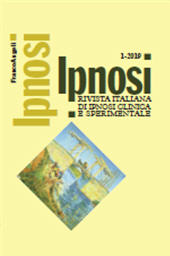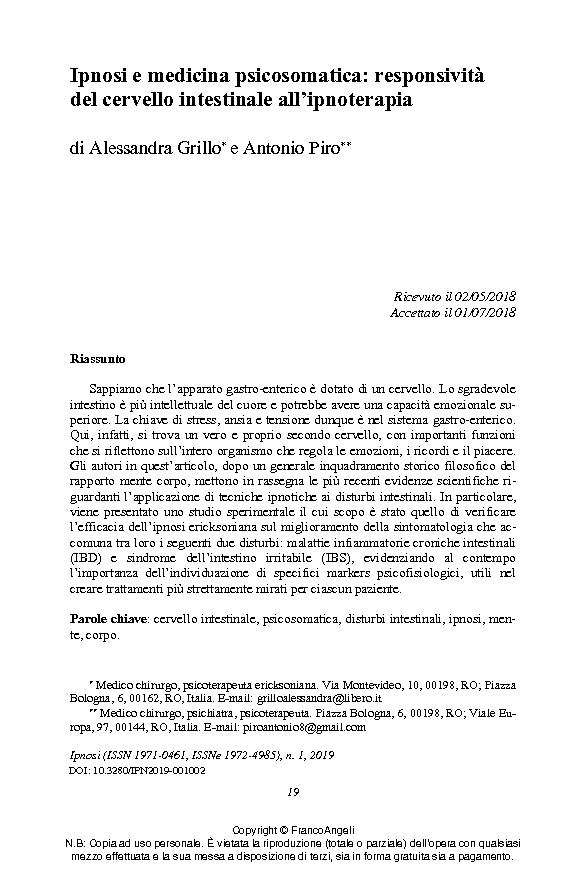Ipnosi e medicina psicosomatica : responsività del cervello intestinale all'ipnoterapia
19-40 p.
Sappiamo che l'apparato gastro-enterico è dotato di un cervello. Lo sgradevole intestino è più intellettuale del cuore e potrebbe avere una capacità emozionale superiore. La chiave di stress, ansia e tensione dunque è nel sistema gastro-enterico. Qui, infatti, si trova un vero e proprio secondo cervello, con importanti funzioni che si riflettono sull'intero organismo che regola le emozioni, i ricordi e il piacere. Gli autori in quest'articolo, dopo un generale inquadramento storico filosofico del rapporto mente corpo, mettono in rassegna le più recenti evidenze scientifiche riguardanti l'applicazione di tecniche ipnotiche ai disturbi intestinali. In particolare, viene presentato uno studio sperimentale il cui scopo è stato quello di verificare l'efficacia dell'ipnosi ericksoniana sul miglioramento della sintomatologia che accomuna tra loro i seguenti due disturbi: malattie infiammatorie croniche intestinali (IBD) e sindrome dell'intestino irritabile (IBS),
evidenziando al contempo l'importanza dell'individuazione di specifici markers psicofisiologici, utili nel creare trattamenti più strettamente mirati per ciascun paziente. [Testo dell'editore].
We know that the digestive system is equipped with a brain. The unpleasant in-testine is more intellectual than the heart itself and may even have a higher "emotional" capacity. The key of stress, anxiety and tension, then, can be found in the bowels. In fact, this is where another true brain is located, with important functions that affect the entire organism that controls emotions, memories and pleasure. The authors of this article, after a general historical and philosophical overview of the relationship between mind and body, list the most recent scientific evidence concerning the use of hypnosis techniques for intestinal distress. More specifically, an experimental study that aims to verify the effectiveness of Ericksonian hypnosis on the improvement of the symptomatology that combines together the Inflammatory Bowel Disease (IBD) and the Irritable Bowel Syndrome (IBS),
and that in the meantime points out the importance of spotting specific psychophysiological markers that are useful for the creation of more focused treatments for every patient. [Publisher's text].
Forma parte de
Ipnosi : 1, 2019-
Artículos del mismo número (disponibles individualmente)
-
Información
Código DOI: 10.3280/IPN2019-001002
ISSN: 1972-4985
KEYWORDS
- Cervello intestinale, psicosomatica, disturbi intestinali, ipnosi, mente, corpo
- Intestinal brain, psychosomatic medicine, intestinal distress, hypnosis, mind, body



